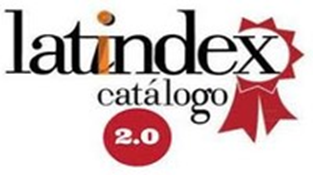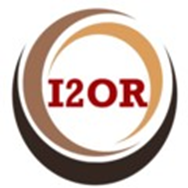Ethics Code
Intersticios Journal is conceived as a space for the production and dissemination of knowledge from a transdisciplinary dialogue between the social sciences and the humanities. In this sense, it is deeply committed to promote editorial policies and practices ethically committed to the guidelines for ethical behavior in the Social Sciences and Humanities - a document prepared by CONICET (Resolution No. 2857, December 11, 2006).
Roles and obligations of the persons involved:
1. Authors
Those who contribute to the editorial process through their scientific work commit themselves to:
-Submit unpublished and original works that, in turn, are not under evaluation by other academic publications.
- Correctly cite the sources, data and information used in the preparation of the work, following the guidelines of the authors of our journal.
-Not to commit any form of fraud in the publication, be it plagiarism, self-plagiarism, double publication, falsification or manipulation of data, among others (see policy on plagiarism).
-Include as authors of the work all persons who have participated significantly in the elaboration of the scientific work -whether in the theoretical discussion, data analysis, systematization of the state of the art or in the writing of the text-, as well as ensure that all participants in the work have read and agree with its publication.
Do not include as co-authors persons who have not contributed significantly to the intellectual development of the work. Minor contributions may, when appropriate, be mentioned in a footnote.
-To review in depth the theoretical-conceptual background of other connected research in the thematic area, trying to contribute to an updated and relevant state of the art, with a diversity of approaches and methodologies.
-To be responsible for the theoretical and conceptual perspectives adopted, as well as for the opinions, conclusions or statements formulated, which are not necessarily shared by the journal's editorial board.
-To be actively involved in the editorial process. This implies making the revisions requested by the referees or the editorial committee in due time and form, communicating as soon as possible in case of identifying any relevant error in the work, waiting for the result of the evaluation to send the article to another journal, as well as reading and accepting the present code of ethics and the corresponding policies.
2. Reviewers/evaluators
Those persons external to the journal's publishing entity, who function as referees of the articles submitted to double-blind evaluation, undertake to:
-Act voluntarily and with suitability within the field of their knowledge and skills. In this sense, they must undertake to state if they consider that they are not sufficiently qualified to review a paper.
-Communicate immediately to the editorial committee in case there is a conflict of interest, be it due to the content of the work or connections with the authors, which prevents them from reviewing with impartiality.
-To carry out a critical, honest, ethical and constructive evaluation in such a way that the author can receive a feedback that allows him/her to improve his/her work, consolidating our culture of scientific knowledge construction. To contribute, in turn, with relevant publications or references that have not been cited and should be included.
-To maintain total confidentiality of the information related to the editorial process, mainly with respect to the evaluated articles, being forbidden the dissemination of data or any information about them, until they have been published.
To respect the anonymity of double-blind refereeing, avoiding inquiries about the author's identity.
-Comply with the structured review guidelines proposed by the journal, respecting the review deadlines indicated. In the event that a longer period is considered necessary, it should be sent to the editors prior to the acceptance of the review.
-Immediately warn the editors if any type of fraud is identified (see plagiarism policy).
-Issue a verdict on the academic work evaluated, which may be: accepted; accepted with modifications; or rejected.
3. Editorial Committee
Those researchers who guarantee the operational functioning of the journal, both in academic and political aspects are committed to:
-Define and enforce the journal's editorial policies and approaches, taking care that the entire editorial process is transparent, impartial and thorough.
-Guarantee the anonymity of authors and reviewers, seeking to maintain the confidentiality of the parties involved.
-Form a rationale for the different Dossiers and convene an expert editor in the subject matter.
-Evaluate the papers received from the call for papers to send them for review or reject them, according to academic criteria related to thematic relevance, feasibility, originality, quality and contribution. Communicate to the authors the verdict resulting from the evaluation process.
-Guarantee external reviewers for the articles approved for evaluation, or consult the Academic Advisory Committee in case of doubts, guaranteeing their suitability in the subject and ensuring that the evaluation process takes place in the shortest possible time.
-Not to publish papers in which any component of plagiarism or fraud has been detected (see Plagiarism Prevention Policy).
Policy for the evaluation of unethical conduct
If any type of irregular practice, ethical misconduct or fraud is detected -such as falsification of data, manipulation of data in favor of certain results, submission of an article with redundant information or submitted previously or simultaneously to another editorial space, indiscriminate use of self-citations, as well as unjustified or ghost authorship- the article will be subjected to a thorough review by the entire editorial committee, which may, in turn, summon members of the academic committee. In this review, both the author's and the reviewers' comments will be taken into account in order to resolve possible discrepancies. In case of ratification of the fault, the article will be rejected for publication and the author will be forbidden to publish again in the journal. The decision will be final.
*This code of ethics takes as references both the editorial code of ethics of the journal El Faro, of the Universidad de Playa Ancha, Valparaíso, Chile; as well as that of the journal Toma 1 of the Universidad Nacional de Córdoba, Argentina.










